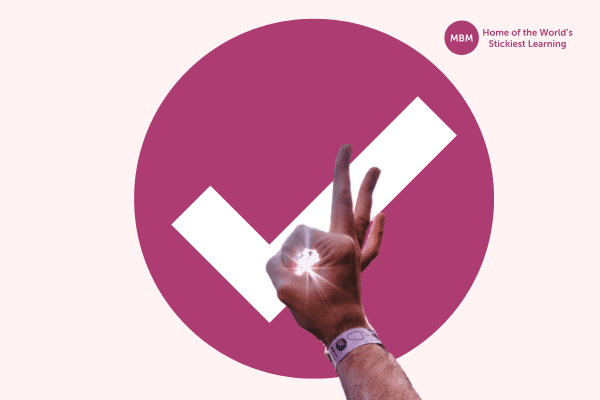Bridging the Gap Between Organisational Strategy and Frontline Employees
In the dynamic business world, line managers serve as the critical link between organisational strategy and front-line employees. They are the frontline leaders who possess the power to shape and guide their teams towards success. Line management responsibilities go beyond mere supervision, hence, making them pivotal figures in driving organisational performance and fostering employee growth.
From setting goals and providing feedback to resolving conflicts and nurturing talent, line managers play a crucial role in ensuring the smooth functioning of their teams. Additionally, they serve as a bridge between upper management and employees, effectively communicating organisational goals and strategies to align the efforts of the team accordingly.
Above all, line managers are tasked with creating an environment that promotes collaboration and productivity. They must balance the needs of the organisation with the well-being of their team members, recognising that both aspects are essential for long-term success.
By fostering a positive work culture, line managers can inspire and motivate their employees to reach their full potential. In this article, we delve into the diverse range of line management responsibilities that they undertake, exploring their role as architects of success and agents of change.
1) Setting and Communicating Organisational Goals

1. Defining Clear Direction:
Line managers play a crucial role in providing their teams with a clear sense of direction and purpose. They collaborate with higher-level executives to understand the overarching organisational goals and translate them into actionable targets that align with their team’s responsibilities.
2. Effective Communication Channels:
Communication is the cornerstone of successful goal setting. Line managers ensure that organisational goals are effectively communicated to their team members. Additionally, they break down complex objectives into smaller, achievable tasks, enabling employees to grasp their contribution to the bigger picture.
Above all, line managers understand the importance of clear and concise communication. They utilise various channels, such as regular team meetings, individual discussions, and written instructions, to convey goals and expectations. This approach ensures that every team member understands their role and responsibilities, fostering alignment and synergy within the team.
Sticky Learning ® is 7 times more effective than 1-day training courses. Plus, you will get a Chain of Evidence proving your Return on Investment. Discover soft skills training that changes behaviours long term.

3. Ensuring Alignment:
Line managers work closely with their team members to ensure alignment between individual goals and the organisation’s objectives. They facilitate discussions, provide guidance, and offer feedback to help employees understand how their work directly contributes to the achievement of broader goals. This alignment fosters a sense of purpose and increases motivation within the team.
4. Monitoring Progress:
Line managers continuously monitor progress towards organisational goals. They track key performance indicators (KPI), evaluate team performance, and identify any gaps or challenges that may hinder goal attainment. Regular check-ins and performance reviews allow them to provide feedback and make adjustments, ensuring that the team stays on track.
By taking charge of setting and communicating organisational goals, line managers empower their teams to work towards a common vision. Their ability to define clear direction, establish effective communication channels, ensure alignment, and monitor progress sets the stage for success, enabling individuals to understand their roles and contribute effectively to the organisation’s overall objectives.
Still, on the topic of line management responsibilities, check out the below resource.


>> Leadership Skills Coaching Cards <<
2) Performance Management and Feedback

1. Continuous Performance Monitoring:
Line managers have the responsibility of monitoring the performance of their team members on an ongoing basis. They observe their work, track progress, and identify areas of strength and improvement. By keeping a finger on the pulse of performance, line managers can address issues promptly and provide timely feedback.
2. Constructive Feedback Delivery:
One of the critical line management responsibilities is providing constructive feedback to their team members. They offer specific and actionable insights on performance, highlighting strengths to be reinforced and areas for development. Through regular feedback discussions, line managers facilitate growth, encourage skill enhancement, and foster a culture of continuous improvement within their teams.
3. Performance Appraisals:
Line managers conduct performance appraisals to formally evaluate the progress and achievements of their team members. They assess performance against predetermined objectives and provide a comprehensive overview of strengths, areas for improvement, and development opportunities. These appraisals serve as a platform for dialogue, goal setting, and performance planning.
4. Performance Recognition and Rewards:
Line managers play a pivotal role in recognising and rewarding exceptional performance. Not only do they acknowledge and appreciate the contributions of their team members, but they also utilise verbal recognition, written commendations, or performance-based incentives. Consequently, recognising achievements and providing appropriate rewards effectively motivate employees, boosts morale, and reinforces a culture of excellence.
Additionally, line managers recognise that effective performance management goes beyond evaluations and feedback. They actively seek opportunities to provide growth and development options to their team members. Whether it’s through training programs, stretch assignments, or mentorship, line managers empower employees to enhance their skills and knowledge, ultimately contributing to their overall success.
Above all, line managers are committed to supporting and guiding their team members. They understand the importance of providing ongoing feedback, coaching, and mentoring to help employees reach their full potential. By investing in their professional development, line managers significantly contribute to enhanced performance, increased job satisfaction, and a more engaged workforce.
3) Employee Development and Training

1. Identifying Training Needs:
Line management responsibilities include identifying the training and development needs of their team members. Accordingly, they assess individual skills, knowledge gaps, and future job requirements. This assessment enables them to determine the appropriate training programs or resources that can enhance employee performance and support career growth.
Moreover, line managers understand the importance of continuous learning and development in today’s dynamic work environment. They recognise that investing in the growth of their team members not only benefits the individuals but also contributes to the overall success of the team and organisation.
Furthermore, line managers actively seek opportunities to provide training and development options for their team members. They may collaborate with HR departments or external training providers to identify suitable programs or resources. By staying updated with industry trends and advancements, line managers can ensure that the training offered aligns with the organisation’s evolving needs and helps employees stay ahead in their roles.
2. Supporting Professional Growth:
Line managers play a vital role in supporting the professional growth of their team members. They provide guidance, mentorship, and opportunities for skill development. By assigning challenging projects, delegating responsibilities, and offering stretch assignments, line managers help employees expand their capabilities and reach their full potential.
3. Fostering a Culture of Learning:
Line managers actively promote a culture of learning within their teams and the organisation as a whole. They encourage employees to seek new knowledge, share best practices, and engage in continuous learning activities. Line managers themselves serve as role models by pursuing their own professional development and staying abreast of industry trends.
4. Coaching and Feedback:
Line managers act as coaches to their team members, providing ongoing support and feedback to enhance their skills and performance. They offer constructive guidance, mentorship, and individualised coaching sessions. By creating a safe and supportive environment, line managers help employees overcome challenges and develop the necessary competencies for success.
Now, for the fourth point of line management responsibilities.
4) Employee Engagement and Motivation

1. Creating a Positive Work Environment:
Line management is instrumental in creating a positive work environment that fosters employee engagement and motivation. They promote open communication, respect, and collaboration among team members. By fostering a culture of trust and inclusivity, line managers create an atmosphere where employees feel valued and motivated to give their best.
2. Recognising and Rewarding Achievements:
Line management plays a crucial role in recognising and rewarding the achievements of their team members. They acknowledge and celebrate individual and team successes, whether through public recognition, monetary incentives, or other forms of appreciation. This recognition not only boosts morale but also motivates employees to continue striving for excellence.
3. Addressing Issues and Concerns:
Line management is responsible for addressing any issues or concerns that may arise within their teams. They act as a bridge between employees and higher-level management, ensuring that concerns are heard and resolved promptly. By proactively addressing issues, line managers create a supportive work environment and contribute to higher levels of employee satisfaction and engagement.
4. Career Development and Growth Opportunities:
Line management actively supports the career development of their team members. They identify growth opportunities, such as challenging assignments, cross-functional projects, or promotions, and provide guidance on how employees can advance in their careers. Line managers also encourage employees to set goals and create development plans to enhance their skills and pursue their aspirations.
5) Conflict Resolution and Team Dynamics

1. Facilitating Effective Communication:
Line managers play a crucial role in facilitating effective communication within their teams. They promote open and transparent dialogue, encourage active listening, and ensure that all team members have a voice. By fostering a culture of open communication, line managers minimise misunderstandings and resolve conflicts more effectively. This takes us to our next point.
2. Managing Conflict:
Conflict is inevitable within any team, and line managers are responsible for managing and resolving conflicts that arise. Specifically, they mediate disputes, encourage constructive discussions, and help team members find mutually beneficial solutions. By addressing conflicts promptly and fairly, line managers maintain a harmonious and productive work environment.
3. Building Cohesive Team Dynamics:
Line managers are instrumental in building cohesive team dynamics. They foster collaboration, encourage teamwork, and create opportunities for team members to bond and build trust. Line managers also ensure that roles and responsibilities are clearly defined, promoting a sense of accountability and unity within the team.
4. Diversity and Inclusion:
Line managers recognise the value of diversity and inclusion in team dynamics. In fact, they actively promote diversity and ensure that all team members feel included and respected. Line managers leverage the unique perspectives and strengths of each team member, fostering a culture that values diversity and embraces different ideas and experiences.
Here’s the sixth section of line management responsibilities…
6) Talent Acquisition and Onboarding

1. Assessing Talent Requirements:
Line managers play an active role in assessing the talent requirements of their teams. They collaborate with HR and upper management to identify the specific skills and competencies needed for each position. By understanding the talent gaps within their teams, line managers contribute to effective recruitment strategies.
2. Participating in Recruitment:
Line managers are involved in the recruitment process by providing valuable input. Specifically, they assist in crafting job descriptions, participate in candidate interviews, and evaluate applicants based on their qualifications and fit with the team. All in all, line managers’ insights help ensure that the right candidates are selected to join the organisation.
3. Facilitating a Smooth Onboarding Process:
Line managers are responsible for facilitating a seamless onboarding process for new employees. They introduce new hires to their teams, provide essential training and resources, and help them navigate the organisation’s culture and procedures. Line managers offer support and guidance, creating a welcoming environment for newcomers.
4. Promoting Integration and Engagement:
Line managers actively work to integrate new employees into the team and foster their engagement. They assign mentors or buddies to assist new hires in adapting to their roles and building relationships. Hence, line managers foster a collaborative atmosphere and encourage connections with colleagues, promoting a sense of belonging and commitment.
7) Change Management: Leading Teams Through Transition

1. Effective Communication:
Line managers play a crucial role in change management by effectively communicating the purpose and impact of the change to their teams. Also, they should ensure that the reasons behind the change are clearly conveyed, addressing any concerns or questions that arise. Furthermore, open and transparent communication builds trust and helps employees understand their role in the change process.
2. Addressing Concerns:
During periods of change, One of the most important line management responsibilities is proactively addressing concerns and anxieties that their team members may have. They should create a safe space for employees to express their thoughts and feelings, actively listen to their concerns, and provide honest and empathetic responses. By addressing concerns in a timely and compassionate manner, line managers can alleviate fears and build confidence in the change process.
3. Supporting Employees:
Line managers should provide ongoing support to their team members during challenging times of change. This may involve offering additional training, resources, or guidance to help employees navigate new processes or systems. Line managers should also be available to answer questions, provide clarifications, and offer encouragement. By demonstrating empathy and providing the necessary support, line managers can help employees adapt and thrive during periods of transition.
4. Managing Line Management Resistance and Maintaining Morale:
Resistance to change is natural, and line managers should be prepared to manage it effectively. They should anticipate potential sources of resistance and proactively address them through clear communication, engaging employees in the change process, and highlighting the benefits of the change for individuals and the team. Line managers should also focus on maintaining team morale by recognising and celebrating small wins along the way. Celebrating milestones and progress helps keep the team motivated and engaged during the change journey.
Tips to Succeed in Your Line Management Responsibilities

1. Master the Art of Communication:
As a line manager, your ability to communicate effectively is paramount. Be a clear and concise communicator, ensuring that your expectations and goals are understood by your team members.
But it’s not just about talking—active listening is equally important. So take the time to understand the perspectives and concerns of your employees, fostering an environment of trust and open dialogue.
Also, regularly provide constructive feedback and recognise their achievements to inspire and motivate them to perform at their best. Also, make sure you understand the scope of line management responsibilities so you can best help your department!
2. Lead by Example and Cultivate Your Leadership Skills:
Leadership is not just a title—it’s about embodying the qualities you want to see in your team. Lead by example, demonstrating integrity, professionalism, and a strong work ethic. Above all, continuously seek opportunities to develop your leadership skills. Attend workshops, seminars, or seek coaching to enhance your abilities.
Additionally, focus on developing your ability to inspire and empower others. Delegate tasks effectively, allowing your team members to take ownership and showcase their skills. Moreover, honing your conflict management skills is crucial. Approach conflicts with diplomacy, striving for resolutions that benefit all parties involved.
By investing in your own growth as a leader, you become a role model for your team. Your dedication to personal development will inspire them to reach their full potential.
3. Nurturing Employee Growth and Development:
One of your most important line management responsibilities is to support the growth and development of your team members. Take the time to understand their individual strengths, aspirations, and areas for improvement. Identify training and development opportunities that align with their career goals, and provide the necessary resources and guidance to help them succeed. By investing in their professional growth, you not only enhance their skills but also foster loyalty and dedication within your team.
4. Foster a Positive and Inclusive Work Culture:
Creating a positive work culture starts with you. Be mindful of your actions and attitudes, promoting a supportive and inclusive environment for your team. Encourage collaboration, teamwork, and mutual respect. Recognise and celebrate the achievements of your team members, both individually and collectively. Regularly express appreciation for their hard work and contributions. By fostering a positive work culture, you create a motivating and fulfilling environment that drives employee engagement and productivity.
As a line manager, you have the power to shape the experience of your team members and drive their success. By mastering the art of communication, cultivating your leadership skills, nurturing employee growth, and fostering a positive work culture, you will not only excel as a manager but also create a supportive and empowering environment where your team can thrive. Embrace these tips, and unlock your true leadership potential.
Conclusion for Line Management Responsibilities
In conclusion, line managers play a multifaceted role in organisations, carrying a range of responsibilities that directly impact the success of their teams. From effective communication and talent management to conflict resolution and change management, line managers are instrumental in creating a positive work environment and driving employee engagement and productivity.
Ultimately, line managers have a direct impact on the overall success and well-being of their teams. Their leadership, guidance, and support contribute to a positive work culture, enhanced employee performance, and a cohesive and engaged workforce. By embracing their responsibilities and continuously developing their skills, line managers can create an environment where individuals thrive, teams flourish, and organisations excel.
You made it to the end! Check out our YouTube channel.




